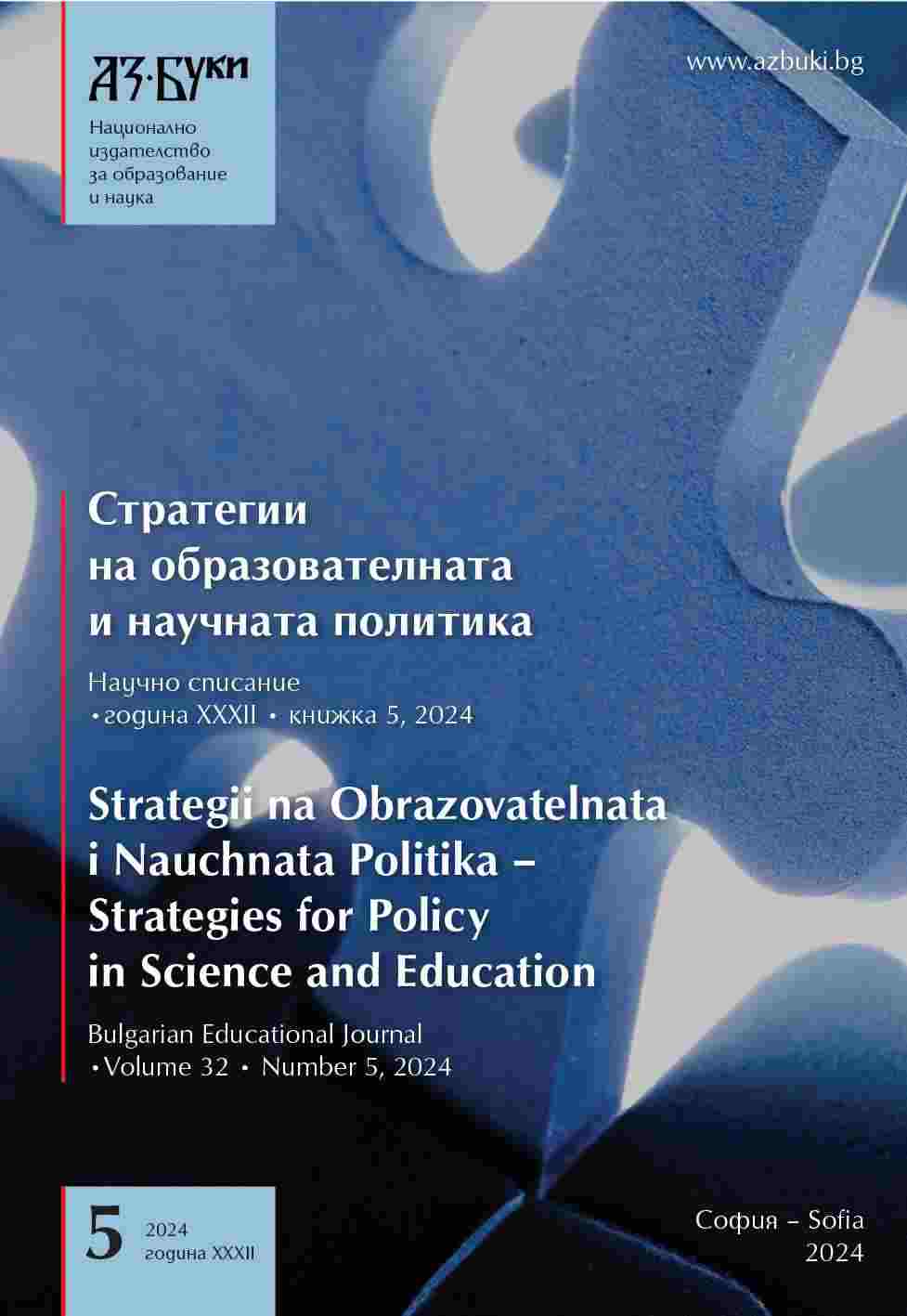Природонаучната грамотност в учебните програми по човекът и природата и биология и здравно образование
The Scientific Literacy in Curricula of the Subjects the Human and the Nature and Biology and Health Education
Author(s): Isa Hadjiali, Teodora KolarovaSubject(s): Social Sciences, Education, Sociology, School education, Higher Education , History of Education, Health and medicine and law, Sociology of the arts, business, education, Sociology of Education
Published by: Национално издателство за образование и наука „Аз-буки“
Keywords: content analysis; school curricula; scientific literacy
Summary/Abstract: The article describes a study focused on assessing in what extent main aspects of scientific literacy are represented in the school curricula of the subjects The Human and the nature” V – VI grade and Biology and health education VII – X grade (junior high school stage and first high school stage). In line with its purpose, a content analysis was used as an appropriate method of this particular research. The analysis was directed on four dimensions of the scientific literacy – cognitive-epistemic, functional, social and metacognitive. To investigate how and to what extent these dimensions are presented in the curricula, we analyzed three components: 1) expected outcomes of the training in the subject by areas of competence; 2) expected outcomes by themes of school content for each subject; 3) activities and cross-curricular connections for acquisition of key competences. The results of the study showed that curricula for both stages placed a greater emphasis on the functional dimension of the scientific literacy (skills and abilities) than the cognitive aspect (factual and conceptual knowledge) and the social dimension (attitudes). But at the same time, other valuable aspects of the scientific literacy such as epistemic knowledge (e.g., knowledge of the nature of science) and metacognitive dimension (e.g., metacognitive knowledge and metacognitive skills) are much less represented in these curricular documents.
Journal: Стратегии на образователната и научната политика
- Issue Year: 32/2024
- Issue No: 5
- Page Range: 583-604
- Page Count: 22
- Language: Bulgarian
- Content File-PDF

